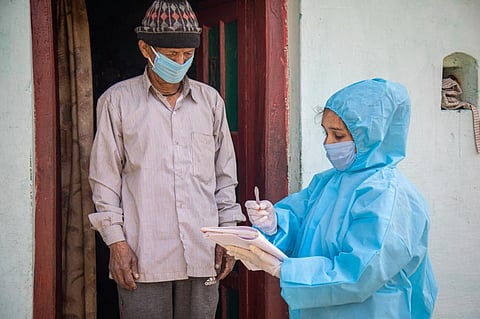

India has proposed several amendments to the International Health Regulations (IHR) that take into account the socio-economic development of states, promote One Health, among other things.
The country advocated implementing IHR to be in “accordance with (the) common but differentiated responsibilities of the States Parties, taking into consideration their social and economic development”. It also recommended assessing human health in congruence with animal and environment health to promote One Health.
India also sought a provision for an intermediate public health alert in the event where an outbreak doesn’t yet meet the criteria for a public health emergency of international concern but requires timely mitigating measures.
Drawing on the learnings from the COVID-19 pandemic, India argues for “equitable access to medical countermeasures.” India also sought greater accountability from the World Health Organization (WHO) in how the IHR is implemented and whether Member States are complying. It proposed the Director-General report all activities under the IHR to the World Health Assembly, particular instances when Member States did not share information.
These amendments were proposed during the first meeting of the Working Group on Amendments to the International Health Regulations (2005) in November 2022. The document was published in December 2022.
Other countries which made submissions included Armenia, Brazil, Bangladesh, Indonesia, Malaysia, Namibia, New Zealand, Russia and Switzerland, among others. Eswatini also made suggestions to the IHR amendments on behalf of the WHO Africa Region. It included issues surrounding intellectual property, licensing, transfer of technology and know-how for diversification of production.
Equity has emerged as the common focal point in demands made by developing countries. Equitable access to the health products, international financing mechanisms, strengthening health systems, access and benefit sharing mechanisms and tailoring responsibilities based on a country’s capacity are some of the key features.
The WHO’s executive board, in its sixth meeting last January, had noted that IHR amendment “should be limited in scope and address specific and clearly identified issues, challenges, including equity, technological or other developments, or gaps that could not effectively be addressed otherwise but are critical to supporting effective implementation and compliance of the International Health Regulations (2005), and their universal application for the protection of all people of the world from the international spread of disease in an equitable manner”.
However, amendments proposed by developed countries seem to evade the equity demand. The European Union’s policy, for instance, noted equity principles should only be applicable for pandemic-scale health emergencies. This terminology, in effect, excludes health emergencies that are not officially declared a pandemic. The argument being that outbreaks at the scale of COVID-19 occur occasionally.
“Capacities developed solely for pandemic response cannot therefore be put in use regularly and this will further result in the deterioration of the capacities as well,” an analysis by Third World Network, an independent non-profit international research and advocacy organisation working on development issues, highlighted.
The Working Group on amendments to the IHR is expected to submit its report by January 2024. As per the current suggestions, the new regulations should make developed countries and WHO more responsible towards developing countries, put in place stricter mandates, swift action and regular implementation review by WHO.
It also sought to replace the Joint External Evaluation (JEE) with a Universal Health Periodic Review (UHPR). “While there is no detail on what UHPR would involve, it likely implies a peer-review mechanism to assess health systems more broadly than the current JEE,” Nina Schwalbe, professor of public health at Columbia University, noted in her Twitter analysis.